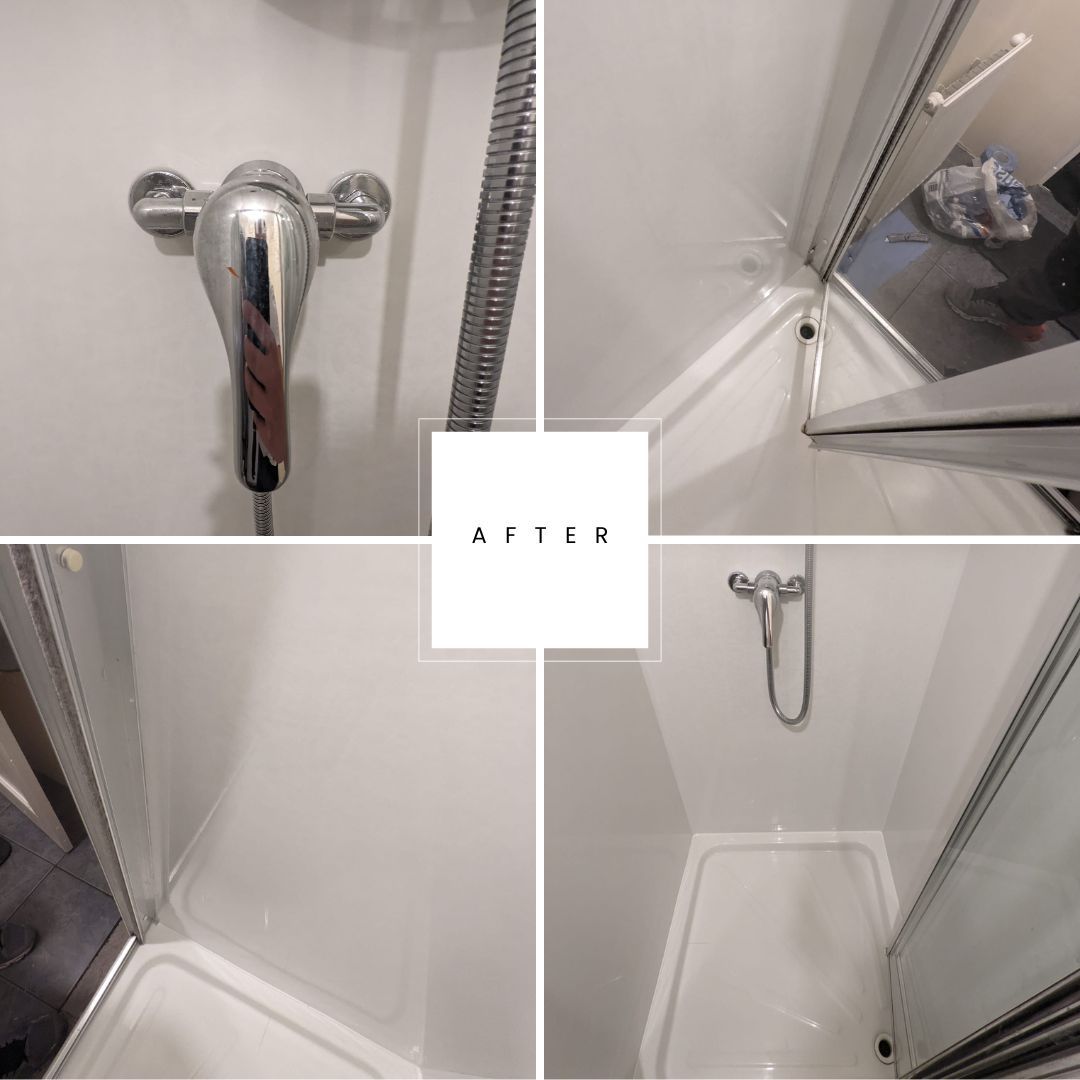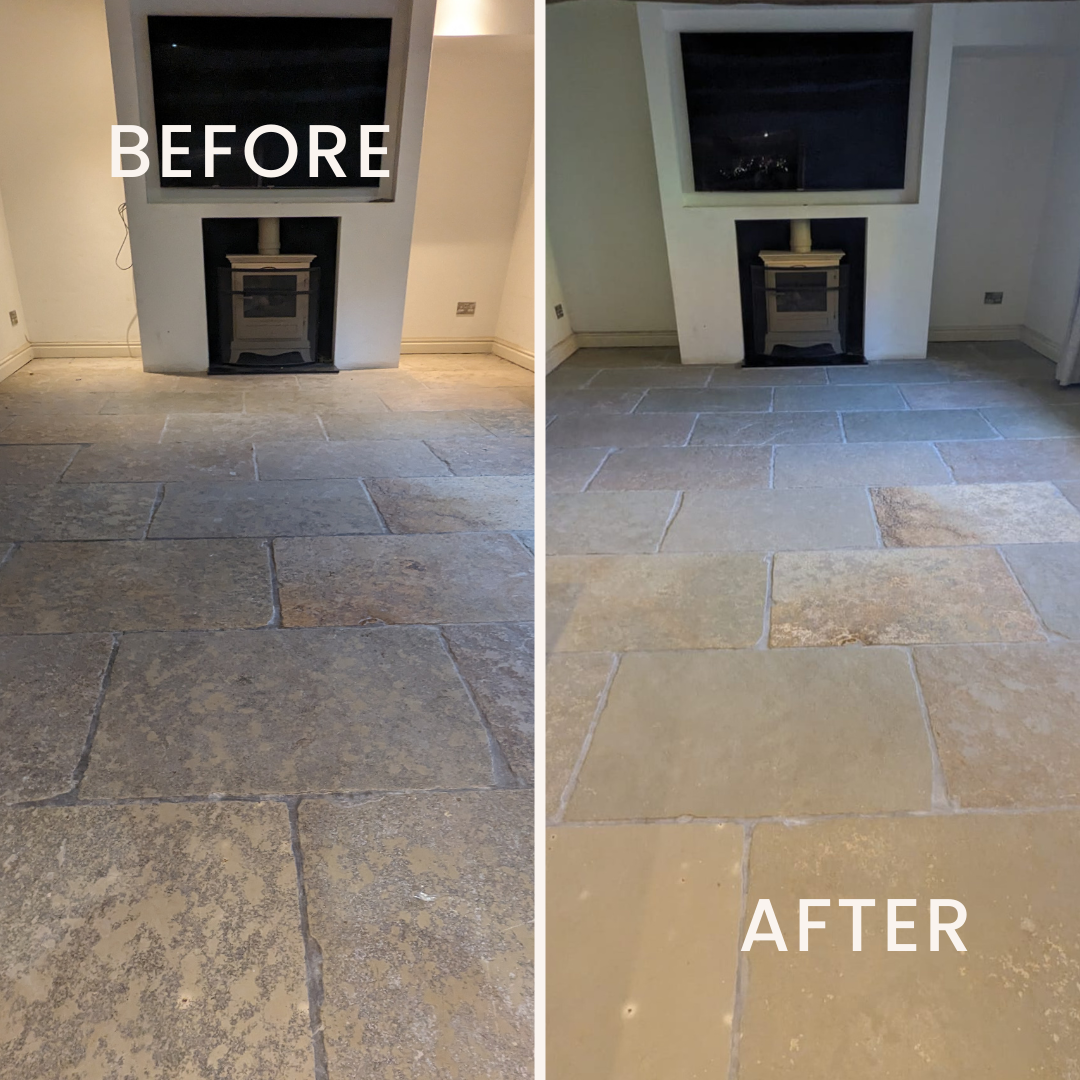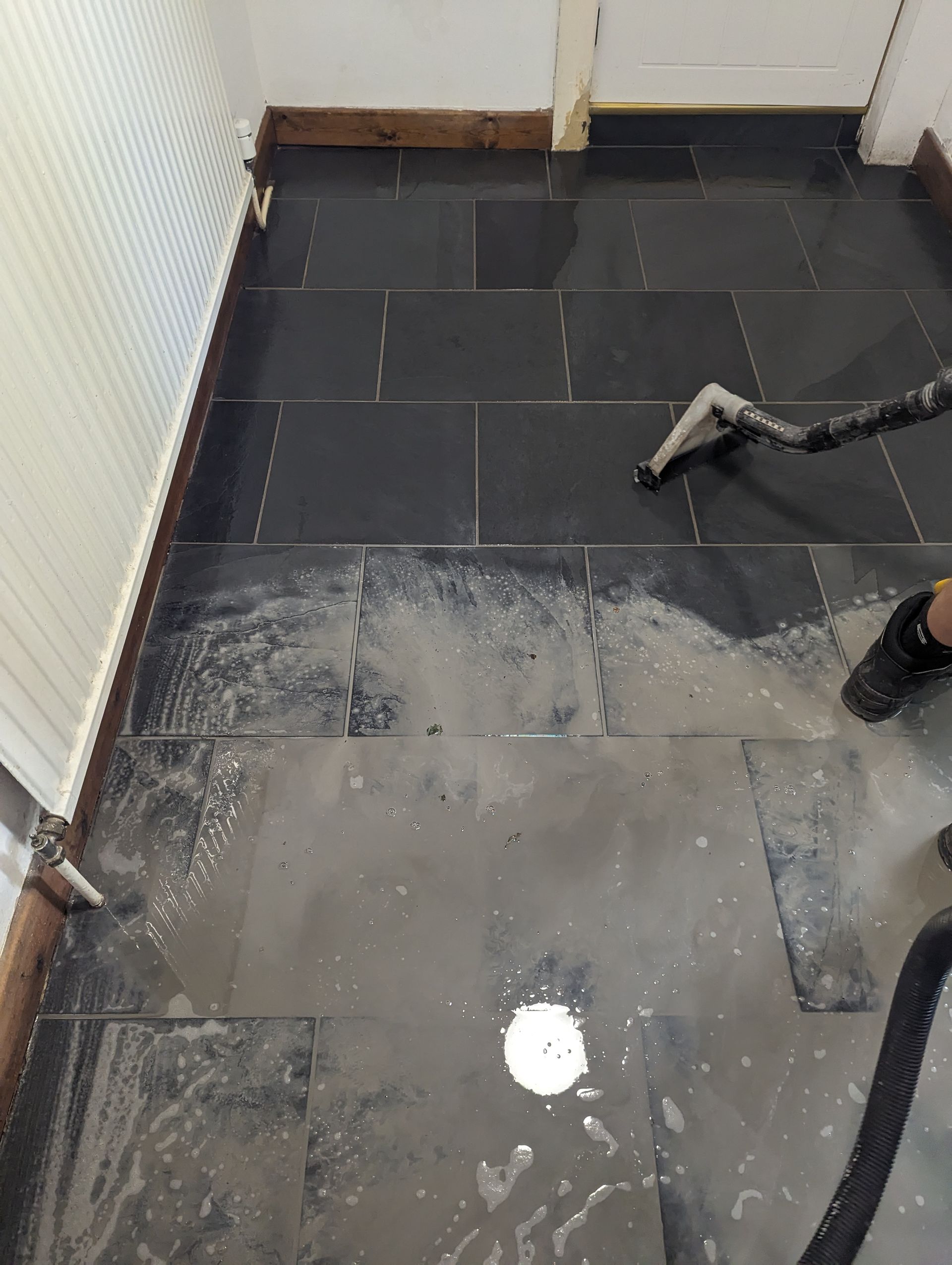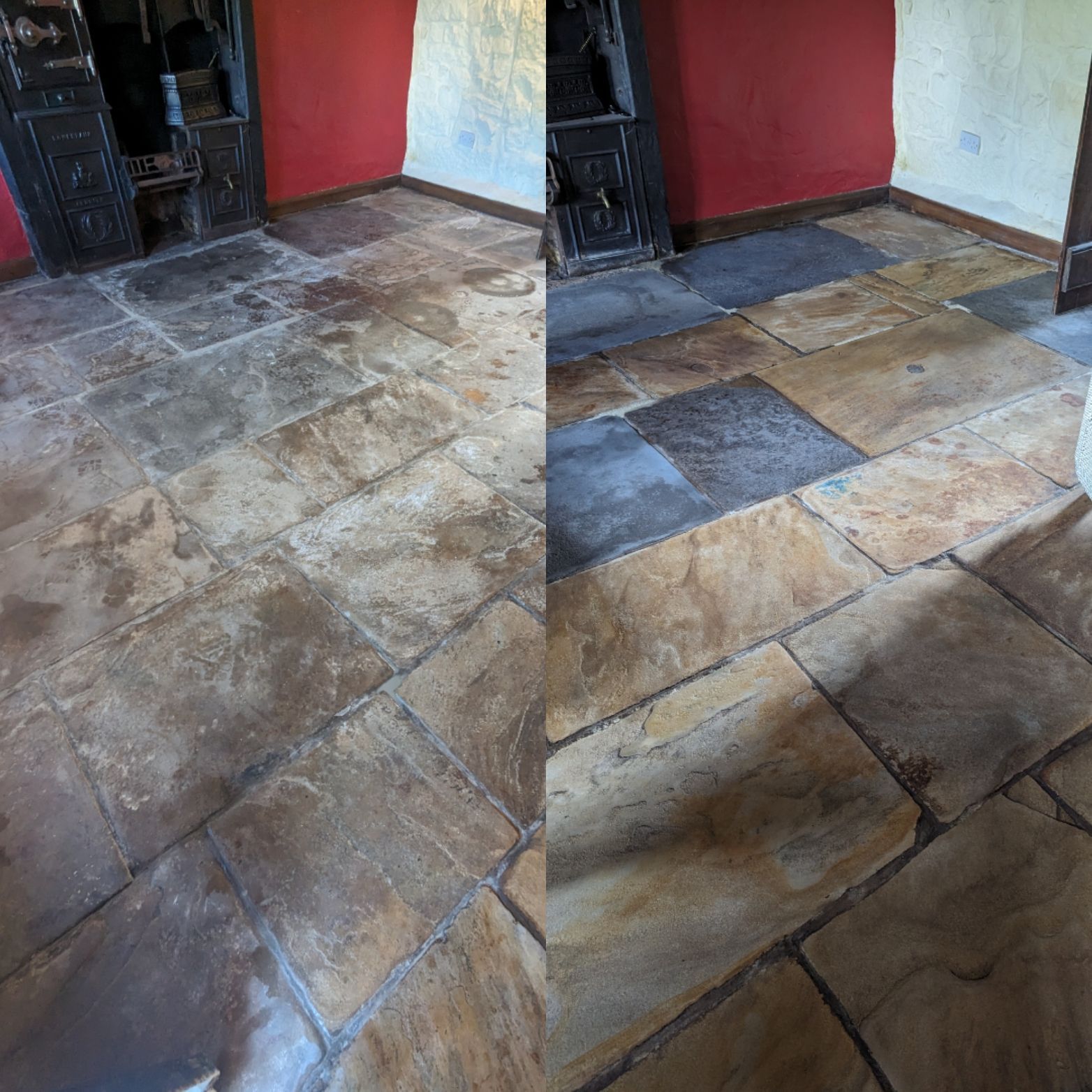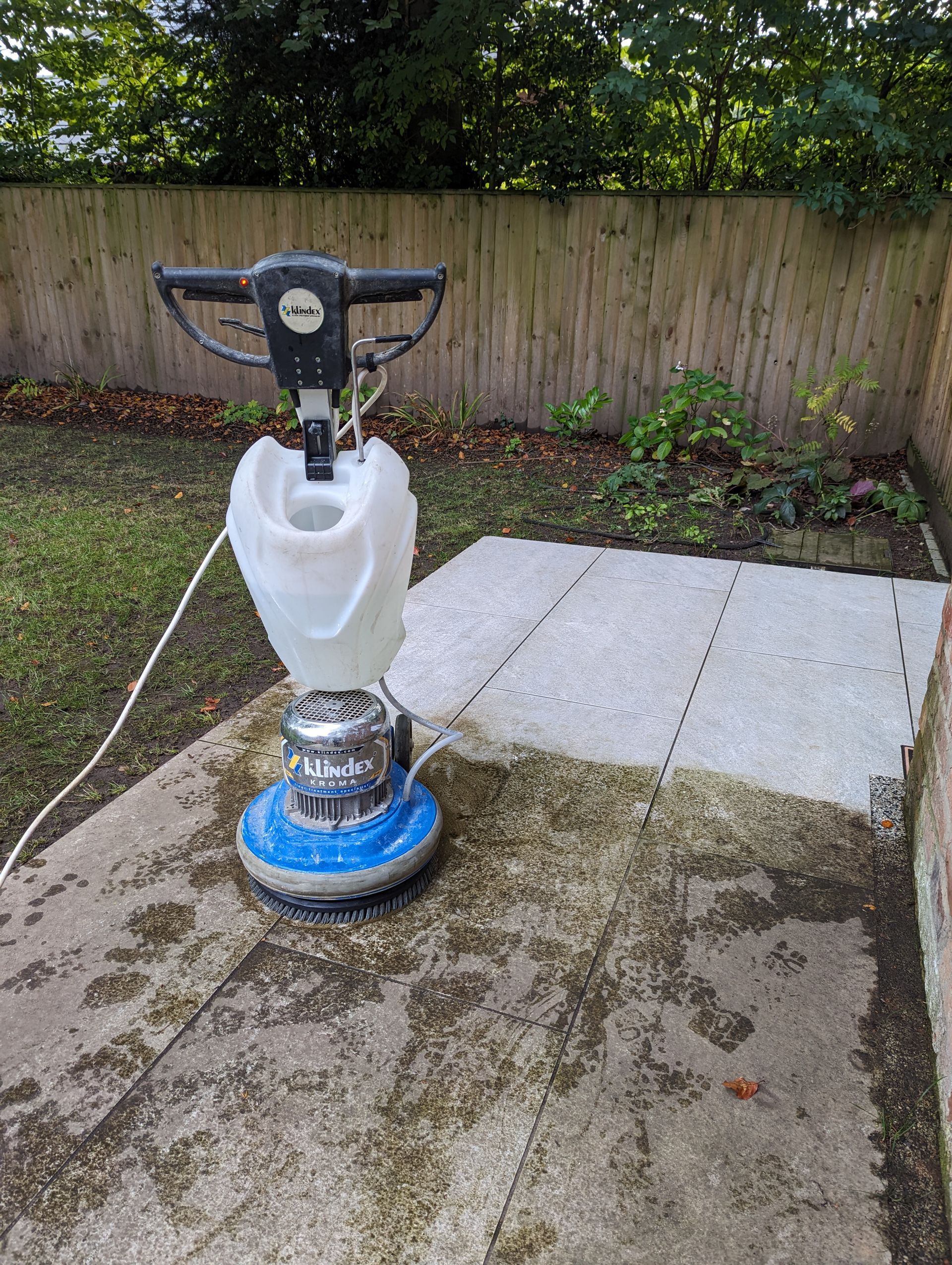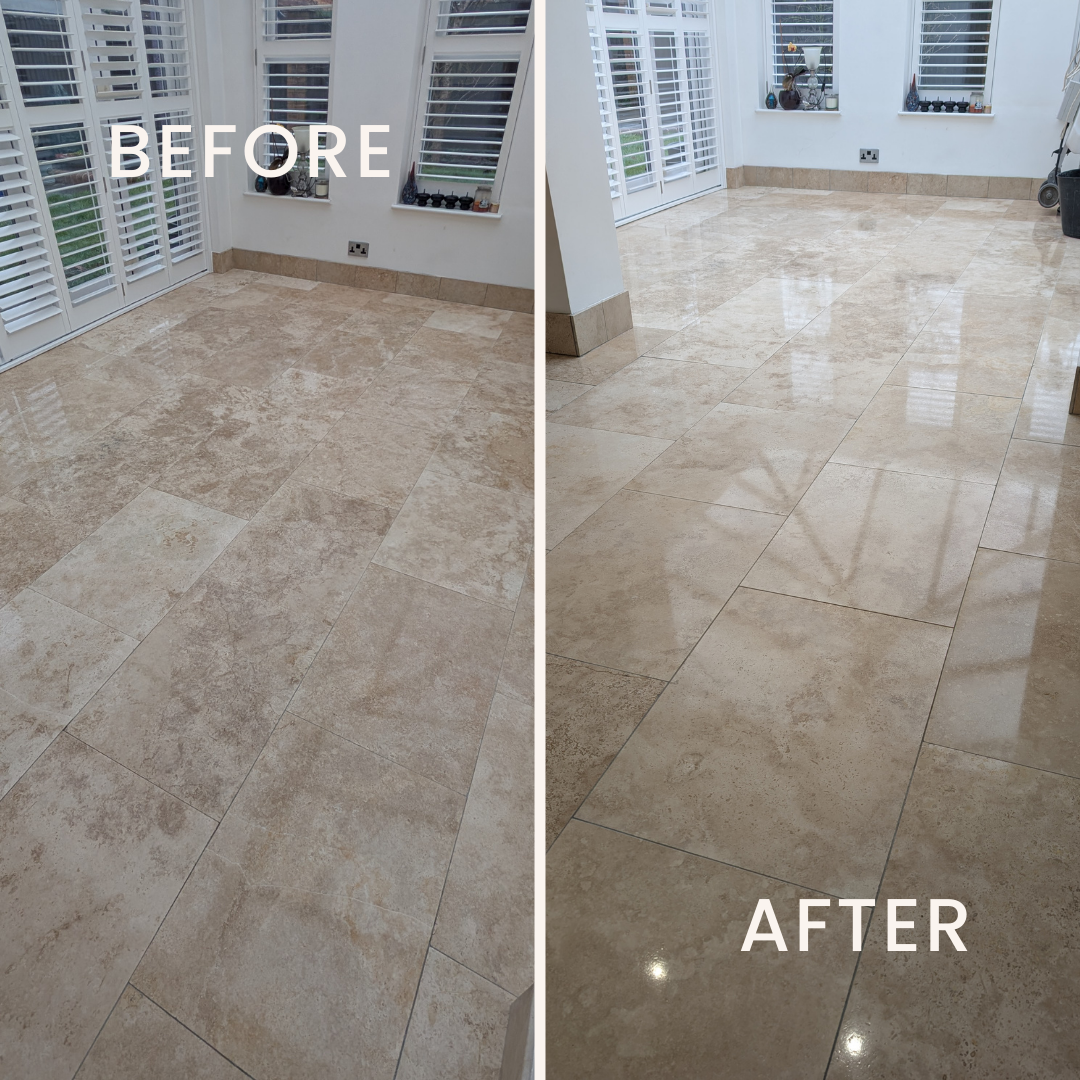DOES STONE SEALANT REALLY WEAR OFF OVER TIME? THE TRUTH ABOUT PROTECTING YOUR FLOORS
Many homeowners assume that once a stone floor has been sealed, the protection gradually fades away over time. But the truth is
impregnating sealants don’t naturally degrade—so why do some floors seem to lose their protection faster than others? Let’s break down the real reasons why your stone may need resealing and how to keep it looking its best.
How Impregnating Sealants Actually Work
Impregnating sealers don’t form a visible film on the surface like some coatings do. Instead, they penetrate deep into the stone’s pores, creating a protective barrier against moisture and stains. These sealants don’t just disappear on their own—instead, external factors determine how long they remain effective.
Why Does My Floor Seem to Lose Its Protection?
1️⃣ Wear and Tear from Foot Traffic
Over time, abrasion from foot traffic exposes new pores and capillaries in the stone. The areas that see the most movement—like hallways and kitchens—are naturally the first to require resealing. The original sealant remains intact in untrafficked areas, but worn-out sections will need touch-ups to maintain full protection.
2️⃣ Damage from Harsh Chemicals
Stone sealants are designed to resist spills, but prolonged exposure to acidic or high-alkaline cleaners can degrade their effectiveness. Cleaning products containing bleach, vinegar, or ammonia can compromise the sealant and leave your stone vulnerable. That’s why we always recommend using a pH-neutral cleaner for maintenance.
3️⃣ Spills and Stains
If a strong substance like wine, coffee, or oil sits on the stone for too long, it can break through the sealant and absorb into the stone itself. Once the barrier is compromised, future spills are more likely to penetrate, making the surface look dull or stained.
4️⃣ Poor Cleaning Habits
Using steam mops, excessive water, or incorrect cleaning methods can gradually weaken the sealant. Steam mops at high settings, in particular, can force moisture into the stone, reducing its protective qualities over time.
How Often Should You Reseal?
The frequency of resealing depends on how much wear your floor experiences. A lightly used stone floor may hold its protection for several years, while a high-traffic area could need resealing every 12–24 months. The key is regular maintenance and using the right products to extend its life.
💡 Quick Test: To check if your stone needs resealing, place a few drops of water on the surface. If the water beads up, the sealant is still effective. If it absorbs quickly, it’s time for a reapplication!
Final Thoughts
Impregnating sealers don’t just "wear off" with time—they are affected by daily use, cleaning habits, and environmental factors. By understanding what causes stone protection to fade, you can take steps to keep your floor looking pristine for longer.
At Quality Tile Care, we specialise in deep cleaning, restoring, and resealing natural stone floors across the North West. If you think your sealant might need a refresh, get in touch today!

At
Quality Tile Care, our mission is to bring life back to your tile and stone surfaces. Whether it's a residential or commercial project, we take pride in our expertise, attention to detail, and commitment to delivering outstanding results.
To enquire about your tiled floor from our tile restoration experts, get in touch through our Contact page or call 07598 913 581.

Contact Us
Our Contact Details

